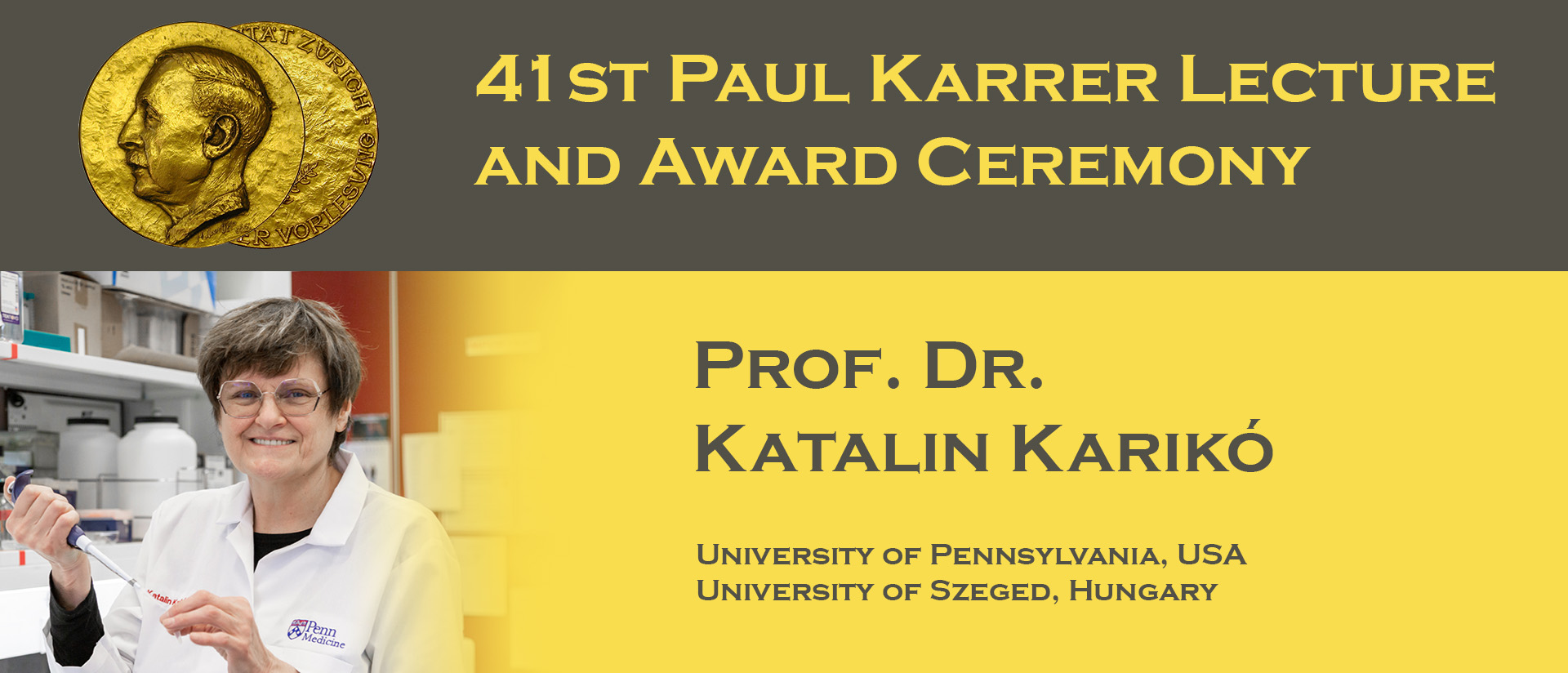41st Paul Karrer Lecture and Award Ceremony

The Laureate
Prof. Dr. Katalin Karikó is professor at University of Szeged and adjunct professor of neurosurgery at the Perelman School of Medicine, University of Pennsylvania, where she worked for 24 years. She is former senior vice president at BioNTech SE, Mainz, Germany, where she worked between 2013-2022. She received her Ph.D. in biochemistry from University of Szeged, Hungary, in 1982. For four decades, her research has been focusing on RNA-mediated mechanisms with the ultimate goal of developing in vitro-transcribed mRNA for protein therapy. She investigated RNA-mediated immune activation and co-discovered that nucleoside modifications suppress immunogenicity of RNA, which widened the therapeutic potentials of mRNA. She co-founded and from 2006-2013 served as CEO of RNARx, a company dedicated to develop nucleoside-modified mRNA for therapy. Her patents, co-invented with Drew Weissman on nucleoside-modified uridines in mRNA is used to create the FDA-approved COVID-19 mRNA vaccines by BioNTech/Pfizer and Moderna to fight the pandemic. For her achievement she received many prestigious awards, including the Peter Speiser Award, Jeantet-Collen Prize, Reichstein Medal, Solvay Prize, Paul Ehrlich Prize, the Breakthrough Prize and the Lasker-DeBakey Clinical Medical Research Award. Just after having accepted to be the Paul Karrer Awardee 2024 Katalin Karikó received the Nobel Prize in Medicine 2023 together with Drew Weissman “for their discoveries concerning nucleoside base modifications that enabled the development of effective mRNA vaccines against COVID-19.”
The Lecture
Developing mRNA for Therapy
Messenger RNA was discovered in 1961 and it took 60 years until the first mRNA became FDA-approved product in the form of COVID-19 mRNA vaccine. During those years a lot of progress has been made. In 1978 isolated mRNA delivered into mammalian cells were shown to produce the encoded protein. In vitro transcription - introduced in 1984 - made it possible to generate mRNA coding for any desired protein from the corresponding DNA by using phage RNA polymerases. In the early 90s in vitro-transcribed mRNA was mainly tested in animals as vaccine against infectious diseases and cancer. A great extent of progress toward a viable treatment was made during those years but the inflammatory nature of mRNA initially hampered its medical use. Replacing uridine with pseudouridine made the mRNA non-immunogenic, more stable and highly translatable. Delivery of the lipid nanoparticle-formulated nucleoside-modified mRNA encoding viral antigens became a platform for effective vaccine. These discoveries eventually led to the development of the COVID-19 mRNA vaccine that has helped to fight the global pandemic and opened the door for developing breakthrough therapeutics for incurable diseases and unmet medical needs.
